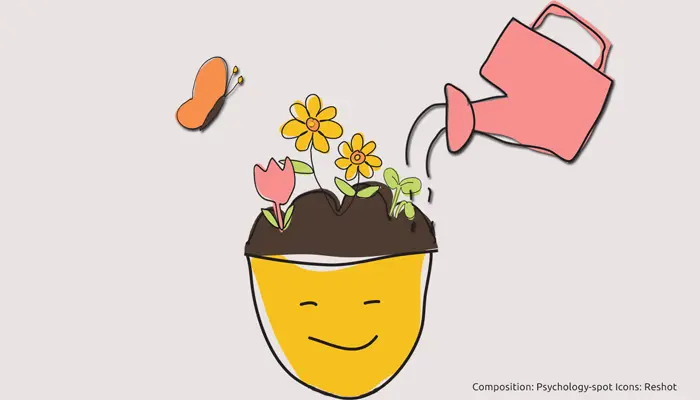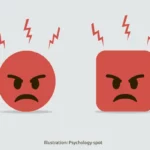
Aptitudes are essential to perform successfully in different areas of life and, however, as a result of the popularization of Positive Psychology, they have been relegated to the background, largely downplaying their importance to extol will and desire.
However, aptitudes are the basis on which we develop our abilities, skills and competencies. Without them, many of the tasks we perform every day would be uphill for us. These aptitudes are discovered in the first years of life, when we realize that we have an amazing memory, an extraordinary voice or unusual creativity.
What exactly does “aptitude” mean?
The word aptitude comes from the Latin word aptitudo, which means “capacity, skill or faculty.” Also comes from aptus, which implies “suitable for”, used to refer to suitability and ability.
In Psychology, Bingham’s concept of aptitude indicates that it is “a condition or set of characteristics considered symptomatic of an individual’s ability to acquire some knowledge, skill, or set of responses (usually specific) through training, such as the ability to learn a new language or create music”.
In fact, aptitudes are the essential conditions or requirements that allow us to develop certain skills or even excel in some areas. It is the potentiality that rests within us to develop certain skills or talents.
Bingham further stated that aptitude is a measure of a person’s chances of success in certain types of situations, such as playing the violin or tennis. Therefore, aptitude is something more than a simple capacity, it could be said that it is the sum of potentiality, plus ability and suitability in performance.
Aptitude: is it innate or acquired?
Many people and even professionals believe that aptitude refers only to the potential with which a person is born. In this way, they give the aptitude an innate and deterministic character.
However, Bingham specified that aptitudes include not only a person’s natural inclinations, inherent tendencies, and original gifts, but also the modification of those abilities over the course of experience.
From this perspective, aptitude is a much more complex concept that encompasses not only innate dispositions, but also our willingness to develop those abilities, as well as the interest in growing in that area and deploying those abilities.
As Hahn and MaeLean pointed out, “aptitudes refer to latent potentialities, capacities that can be developed to acquire abilities and skills reaching demonstrable achievements.”
In fact, a broader definition of aptitude understands it, not as a rigid entity or a potentiality circumscribed to an area, but rather as a constellation of potentialities. That unique set of aptitudes is what makes a person learn and develop something very differently than someone else learns and develops it.
For example, Ludwig van Beethoven had unusual musical aptitude. At just ten years old, people were already paying to hear him play the piano at the concerts organized by his father. Wolfgang Amadeus Mozart was another child prodigy. When he was just five years old, his feet hardly touched the ground but he already mastered musical composition and played the piano. However, that enormous talent continued to grow thanks to discipline and persistence. Thanks to his passion for music and the desire to dedicate himself to it.
Irish poet and novelist Samuel Beckett couldn’t have summed it up better: “It doesn’t matter. Try again. Fail again. Fail better.” He knew very well what he was talking about since his first novel “Murphy” became one of the most rejected books of all time. After 40 rejections from the publishers, it was finally published and Beckett won the Nobel Prize for Literature.
Those examples show us that predisposition is important and paves part of the way, but the right aptitude is what leads to success. Without perseverance, optimism, and discipline, aptitudes are likely to languish, never reaching their potential.
Types of aptitudes: what do you excel at?
Aptitudes facilitate the development of certain activities since they are special skills that we can develop throughout life. The most traditional classification divides aptitudes into different typologies according to their level of complexity:
• Physiological aptitudes. These types of aptitudes refer to physical characteristics that facilitate both the practice of a sport and the performance of some activities and professions that have a large physical component. As a general rule, reference is made to 10 physiological aptitudes: general resistance, anaerobic potential, aerobic capacity, muscular power, speed, flexibility, muscular endurance, joint mobility, muscular strength and muscular elongation. The combination of these aptitudes can give some people an additional boost in the practice of a sport at a professional level, leading them to stand out in their area.
• Sensory aptitudes. These types of aptitudes are related to the five senses and can be more or less accentuated. They are probably the most evident aptitudes and the most constant throughout life. People who have a highly developed sense of smell are an example of sensory aptitudes and often develop their professional careers in sectors where their gift is a plus, such as the creation of perfumes and aromas since they are able to detect the most subtle differences. In fact, some genetic variations are known to influence the function of olfactory receptors, causing people to develop a different olfactory register.
• Motor aptitudes. Unlike physiological aptitudes, motor aptitudes are often more complex and precise, which is why they generally lead people to develop artistic, craft, or musical talents. Manual dexterity, the sense of balance, visual-manual coordination or harmony are some examples of these aptitudes, which can be deployed in different sectors, from dance to painting or playing a musical instrument.
• Mental aptitudes. Often confused with intelligence, this type of aptitudes actually refers to intellectual functions in a broader sense, ranging from thinking to memory and attention. In fact, Louis Leon Thurstone, one of the most influential authors in the field of psychometrics, proposed the existence of 7 primary mental aptitudes, although in reality there are many more. Verbal comprehension is one such aptitudes, which includes both vocabulary and semantic mastery.
He also refers to verbal fluency, a basic skill for many professionals in the social studies. Thurstone also refers to numerical aptitude, essential in Science careers. There is also spatial aptitude, which is the ability to represent objects in space and is essential for painters, sculptors and designers, as well as associative memory, which refers to the ability to retain associations of pairs of elements, speed of perception, which involves the identification of structures, sequences and patterns. Finally, Thurstone referred to the general reasoning or induction aptitude, which implies the ability to draw inferences and make generalizations based on facts, using logic.
In any case, it’s important to understand that while most aptitudes are predispositions we’re born with, only perseverance can help us develop and make the most of them. A study conducted at Iowa State University revealed that choosing a career or job that aligns with our skills and interests will significantly boost our chances of success. After all, success is nothing more than a mixture of aptitude, effort and passion.
Sources:
Rottinghaus, P. J. et. Al. (2003) The relation of self-efficacy and interests: a meta-analysis of 60 samples. Journal of Vocational Behavior; 62(2): 221-236
Snow, R. E. (1992) Aptitude Theory: Yesterday, Today, and Tomorrow. Educational Psychologist; 27(1): 5-32.
Hahn, M. E., & MacLean, M. S. (1955) Aptitudes, abilities, skills, and achievements. En M. E. Hahn & M. S. MacLean, Counseling psychology (pp. 133–151). McGraw-Hill Book Company.
Bingham, W. V. D. (1952). Walter Van Dyke Bingham. En E. G. Boring, H. Werner, H. S. Langfeld, & R. M. Yerkes (Eds.), A History of Psychology in Autobiography, Vol. 4, pp. 1–16). Clark University Press.



